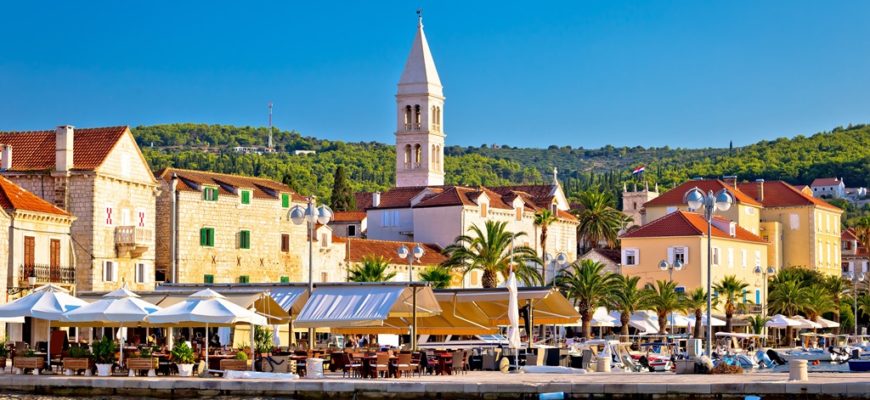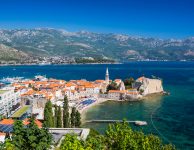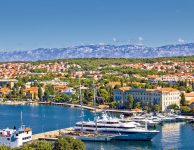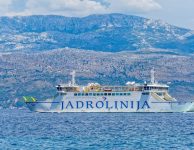Better healthcare on Croatian islands – fast ships, mobile ambulances and helicopters
According to available data from the Croatian Ministry of rural development, Croatia has 49 inhabited islands (not including the Pelješac peninsula). Islands with the largest numbers of inhabitants are Cres, Krk, Brac, Hvar, Korcula, Pag, Dugi Otok, Mljet, Vis and Rab.
All of these islands share the same problem – lack of adequate health care. For example, island Brac has no gynecologist, pediatrician, or adequate speedboats for patient transport.
However, island Mljet has 10 times fewer inhabitants than Brac, but still has adequate health care – on thousand islanders there are 2 GPs. But during the summer there are a lot more inhabitants so the medical needs are bigger than in the off-season.
Maybe things will change with the arrival of the National Strategy for island development 2021 – 2027 and the Action for implementation (2021 – 2023).
What will the National strategy bring to the islanders?
This strategy includes the strengthening of the primary medical care system through investments into infrastructure and telemedicine, especially on smaller and faraway islands, said the Croatian Ministry of health.
The plan is to enlarge the capacity of laboratories and health homes, also the Ministry will invest in medical equipment, the improvement of the emergency medical system along with the development of pharmacy networks on the islands.
But how to encourage a doctor from Zagreb to move to Lastovo?
The Ministry says the solution is excellent working conditions. Also, the Ministry will finance on the national level specializations in gynecology, pediatrics, family medicine and emergency medicine as well as specializations that are deficit on Croatian islands.
The medical equipment and medical specializations will be financed using EU funds, and the Croatian government is convinced that these actions will contribute to the development of health tourism in the off-season.
The plan for the bigger islands is to strengthen the specialist-consultative care in health homes which should result in fewer departures from the island and the rationalization of personal medical expenses for the islanders.
Mobile ambulances and emergency helicopter services to be introduced
For smaller islands, the plan is to introduce mobile ambulances while larger islands will have telemedical services.
Transportation of patients from islands to the mainland will be facilitated by the procuration and development of an emergency helicopter service. This means that investments will be necessary for building heliports and adapting ferry ports for the helicopters. Also, the plan is to develop a network of mobile pharmacies on smaller and faraway islands.
In December 2020, the Ministry of Health started market research and the process of informing interested subjects. The project itself is estimated to last from one to two years.
In the first phase, the plan is to procure services from operators with whom the Ministry would sign a contract for no less than 5 years. In that case, the operator would handle their own equipment and staff, while the Ministry would procure the medical staff (doctors, nurses, and other medical technicians).
Building and furnishing of emergency speedboats in progress
Thanks to the EU-funded project “Establishment of an emergency maritime medical service by speedboat” a public procurement procedure was conducted for building and furnishing 6 emergency speedboats. The offer of the Association of offerers Tehnomont Brodogradilište Pula i ISKRA brodogradilište 1 d.o.o. was chosen. It’s worth 76,4 million kuna with tax. 85% of the money is provided by EU funds, while the rest is covered by the state.
The shipyards are obligated to finish the speedboats 2 years after the contract signing, and the boats will be stationed at Mali Losinj, Rab, Zadar, Sibenik, Supetar (Brac), and Dubrovnik. Except for emergency transportation, these speedboats will be used for search and saving missions in case of accidents.
In order to prevent unnecessary transportation expenses, medical-biochemical tests will be provided on 12 locations – Dubrovnik-Neretva county- Blato on Korčula, Korčula, Lastovo, Mljet; Primorsko-goranska county – Cres, Mali Lošinj, Rab; Split-Dalmatia county- Jelsa on Hvar, Supetar on Brac, Šolta, Vis; Zadar county – Preko.
How to attract medical staff to Croatian islands?
Developing infrastructure and equipment is in vain if there’s no medical staff on the islands. Lack of medical staff and their reluctance to live in sparsely populated locations is a problem for the local units of self-government.
This problem can only be solved by providing medical staff with acceptable working and living conditions. Scholarships and other tools are needed for motivating young medical staff to return to the islands and practice medicine there. Local governments should also provide affordable housing and much more quality living conditions for these experts said the Ministry of Health.
Until 2027, there’s enough money for specializations in primary medicine and for the strengthening of specialist-consultative care in health homes. The project itself should start during January and the realization of 460 specializations worth around 510 thousand kunas should start in the first half of this year.
Source: morski.hr






